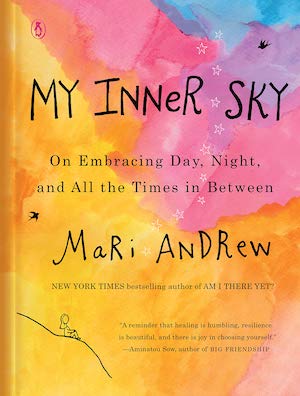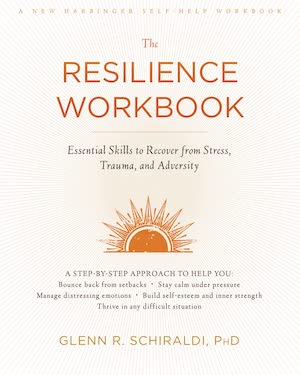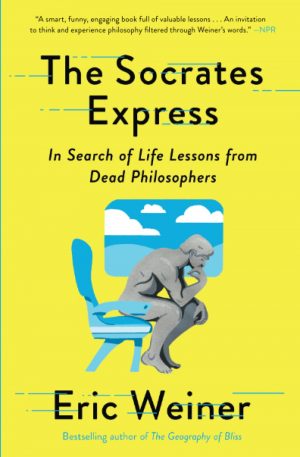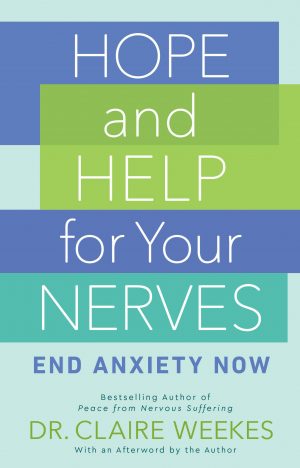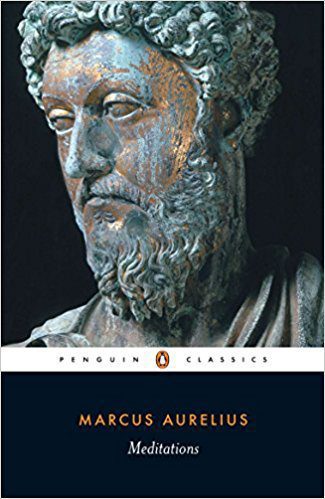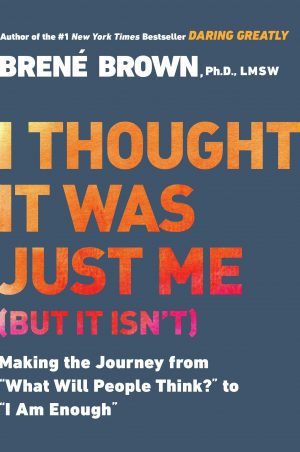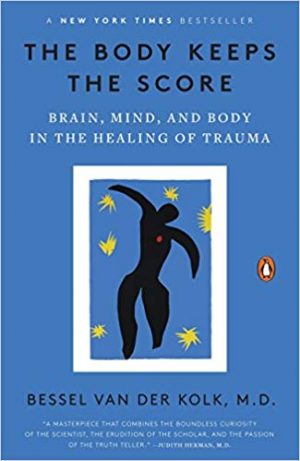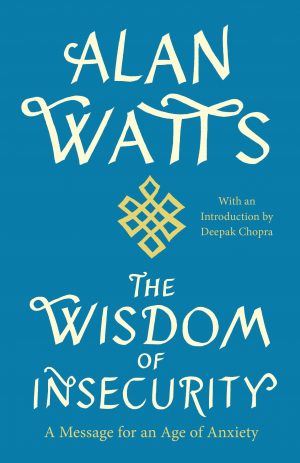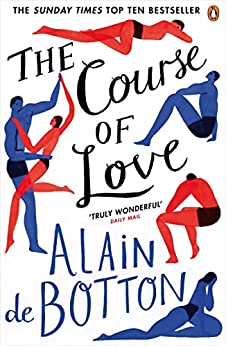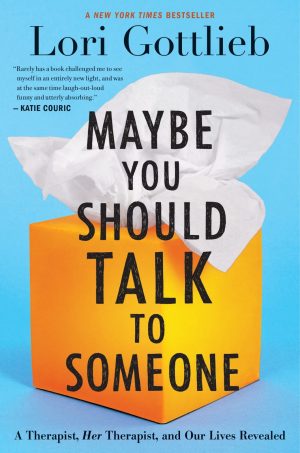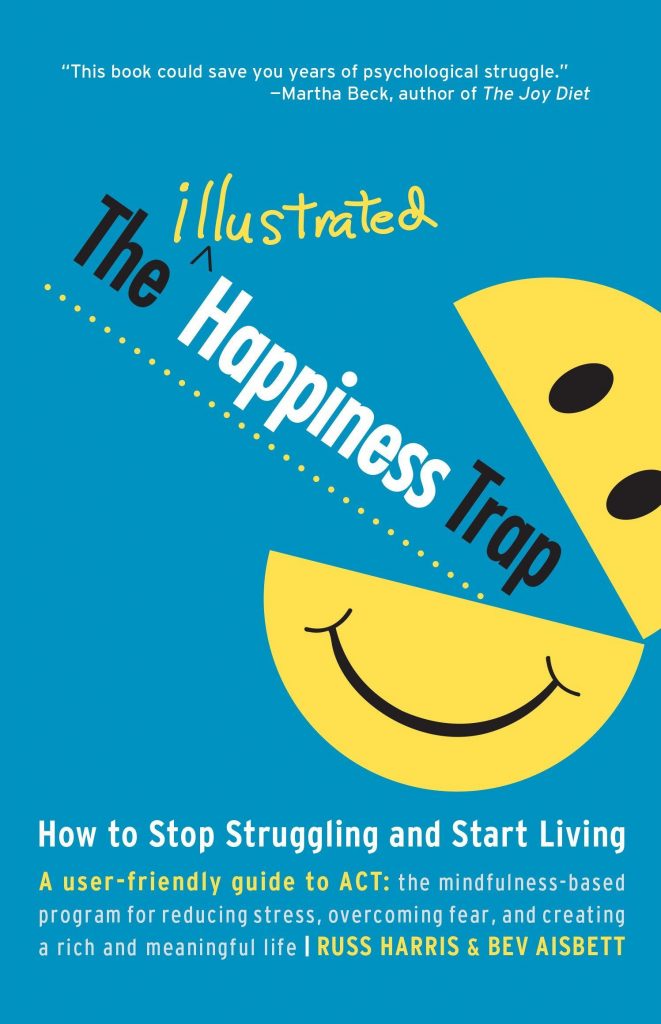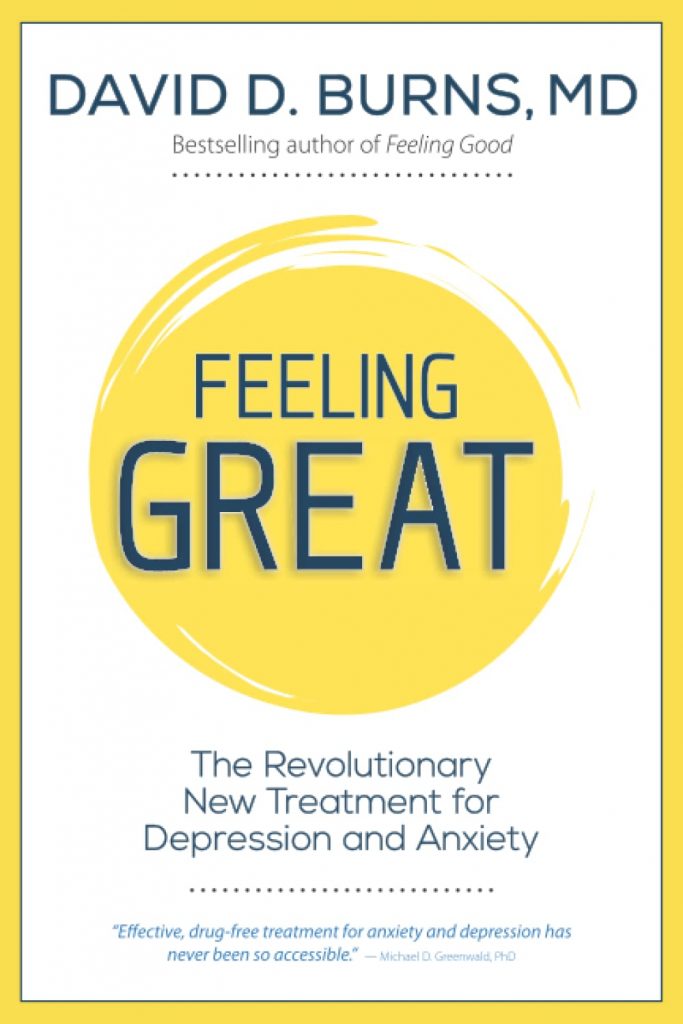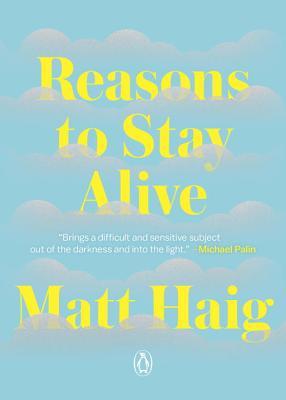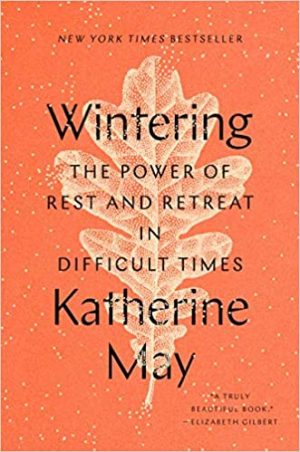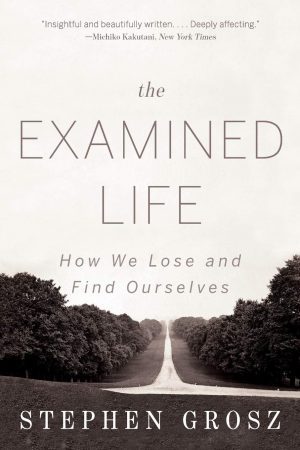15 of the best self-help books for when you can’t get to therapy
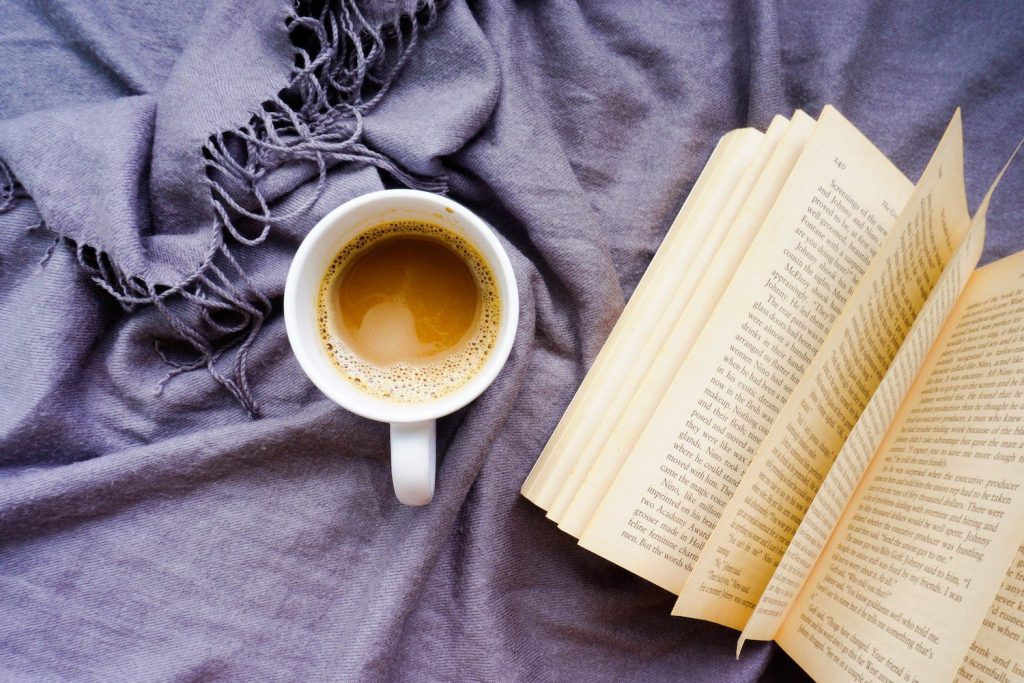
I owe a lot to therapy. After I was diagnosed with PTSD and anxiety disorders, EMDR therapy essentially changed who I was.
I’ve been thinking lately of sending a message to the therapist I saw in my late teens to share what I’ve achieved since then… travelling on my own, moving to two different countries, starting businesses, getting married. So much of that would have been very difficult if I’d stayed in my anxious shell.
Ideally, we’d all be seeing a therapist. But first up, therapy can be expensive. You’re busy. Maybe you just want to start doing some of the work yourself first. Or perhaps, you’ve done a lot of therapy already and now just want a top-up.
Book a session with a professional if you can, especially for more severe challenges, but here are some of the best self-help books to read when you can’t get to therapy to find a bit more peace, understanding, and acceptance.
- Best for self-reflection: The Resilience Workbook
- Best for finding meaning: The Socrates Express
- Best for coping with loss: When Things Fall Apart
- Best for navigating relationships: The Course of Love
- Best for self-care: My Inner Sky
- Best for easing anxiety: Hope and Help for Your Nerves: End Anxiety Now
- Best for when you’re experiencing depression: Reasons to Stay Alive
- Best for burnout or when you’re stuck in a rut: Wintering
The best self-help books for 2022 to read when you can’t get to therapy
1. My Inner Sky: On Embracing Day, Night, and All the Times in Between By Mari Andrew
My Inner Sky is a gorgeous book by writer and illustrator Mari Andrew, offering a collection of essays and illustrations divided into phases of the sky – twilight, golden hour, night, and dawn – that reflect the ups and downs of life.
Mari explores all of the emotions that make up a life and offers insights about trauma and healing, loneliness and love, and shares empowering wisdom on how to turn all of it into something meaningful.
2. The Resilience Workbook: Essential Skills to Recover from Stress, Trauma, and Adversity
Some of the best types of books to read when you can’t get to therapy are workbooks created by therapists and experts.
The Resilience Workbook is one of the best self-help workbooks, consisting of a step-by-step approach to help you recover from setbacks, stay calm under pressure, build self-esteem, and get through difficult situations.
Set aside time in your schedule to work on mental health activities, and start a dedicated notebook or word document to use with this workbook. In particular, the journaling exercises can be really beneficial – don’t skip them!
3. The Socrates Express: Searching for Life Lessons from Dead Philosophers By Eric Weiner
What can we learn from dead philosophers? Quite a lot, says Eric Weiner in The Socrates Express, a fun book that’s full of wisdom.
Traveling by train (the most thoughtful mode of transport, he believes), Eric Weiner journeys thousands of miles, making stops in Athens, Delhi, Wyoming, Coney Island, Frankfurt, and points in between to reconnect with philosophy’s original purpose: teaching us how to lead wiser, more meaningful lives.
From Socrates and ancient Athens to Beauvoir and 20th-century Paris, Weiner’s chosen philosophers and places provide timeless practical and spiritual lessons that are still very relevant for today’s chaotic times.
4. Hope and Help for Your Nerves: End Anxiety Now by Claire Weekes
This bestselling self-help book for anxiety – based on the author’s years of experience treating patients – will show you step-by-step how to break the cycle of anxiety and feel calmer and more balanced every day, no matter what life throws at you.
In a Reddit post on the best books for anxiety, amanda_l3ee shares how the author “talks about how your brain can trick your body into feeling things and then those things make your brain spiral deeper until you are caught in a loop of anxiety. Just understanding that this happens and I’m not crazy has helped me manage my anxiety.”
5. Meditations by Marcus Aurelius
I first read Meditations during one of the most anxious periods of my life, while studying for my undergrad degree in the UK.
I remember reading a Penguin paperback of Meditations in a little coffee shop during the weekends, shortly before I found the courage to end a relationship, travel abroad alone for the first time, and then move to Switzerland.
This book – Marcus Aurelius’s private journal – is the first self-help book ever written, and it’s just as applicable today as it was two thousand years ago.
Get your copy and turn to it when you’re feeling lethargic, lost, sweating the small stuff, or lacking motivation.
6. I Thought It Was Just Me… But It Isn’t by Brene Brown
No one writes about shame and vulnerability like Brené Brown does. I Thought It Was Just Me… But It Isn’t is Brené’s liberating celebration of the importance of our imperfections, both to our relationships and to our own sense of self.
7. The Body Keeps the Score by Bessel Van Der Kolk
The Body Keeps the Score is one of the most popular books about trauma and the mind-body connection, reaching bestseller lists and helping millions of people to think about how the past is still showing up in their body. It’s also one of the most recommended books by therapists.
Ever since I read it, I’ve been more conscious of how I feel in my body – how I’m holding my breath, feeling tense in my shoulders, tightening my muscles. The On Being podcast episode with Bessel Van Der Kolk is fabulous too.
8. The Wisdom of Insecurity by Alan Watts
When we spend all of our time worrying about the future and lamenting the past, how can we enjoy the present moment?
Here in The Wisdom of Insecurity, philosopher Alan Watts shows us how – in an age of unprecedented anxiety – we can find fulfillment by embracing the present and living more fully in the now.
This isn’t about solving all of our problems and boosting our confidence. In fact, Alan Watts shows us that true security can only come from understanding that impermanence and insecurity are the essence of our existence.
This beautiful book is a guide to return to again and again for comfort in challenging times.
9. The Course of Love by Alain de Botton
I’ve recommended The Course of Love to so many people, and so many people have recommended it to me as well.
It’s a guidebook to love, really, told as a novel yet interjected with philosopher Alain de Botton’s trademark comments on the psychology, sociology, and philosophy of love.
Why is love never smooth sailing? Why do our partners infuriate us? And why is our partner so uniquely infuriating?
Read this book if you’d like an answer – it’s one of the most impactful non-fiction books you can read. (Spoiler: we’re all infuriating and crazy in our own way, and only those we don’t know very well seem totally sane.)
10. Maybe You Should Talk to Someone: A Therapist, Her Therapist, and Our Lives Revealed By Lori Gottlieb
In Maybe You Should Talk to Someone, therapist Lori Gottlieb shares the story of when she realised that she was in desperate need of therapy herself: after an unexpected breakup left her feeling lost and devastated.
As Gottlieb explores the inner lives of her patients, she finds that the questions they’re struggling with are the very ones she is now bringing to her own therapist.
11. The Happiness Trap by Russ Harris
The Happiness Trap counters the idea that we’re always supposed to be happy… which is, quite frankly, making us all miserable. I love this illustrated edition that makes the book even more accessible and easy to digest.
In this self-help book for depression, Harris shows you how to use Acceptance and Commitment Therapy (ACT) as a simple, self-administered therapy based on mindfulness to start living more fully, reduce stress, and treasure the range of emotions that make up a satisfying life.
12. Feeling Great: The Revolutionary New Treatment for Depression and Anxiety by David D. Burns
In Feeling Great, Dr. David Burns shares how our negative thoughts don’t result from what’s wrong with us, but rather from what’s right with us. Our minds are trying to tell us something, and our job is to listen. Only then can we realise that we don’t need most of these negative thoughts anymore.
This is Dr. Burns’s fast-track way to help you start working through your depression yourself (or ideally, accompanied by a psychologist or other professional). It also goes beyond this, though, and shows you how to find your way back to joy.
13. Reasons to Stay Alive by Matt Haig
Reasons to Stay Alive is one of the best books about depression from the last decade – and one of the most popular too.
This is Matt Haig’s story of depression, written with the trademark honesty and vulnerability that he’s become so well-known for in the last few years.
It’s packed with memorable takeaways to revisit on the most difficult days, including a reminder that, with time, the light will come back into your life. It’s a good book for anyone with depression to read, but especially men struggling with depression.
14. Wintering by Katherine May
Wintering is one of the best books to learn to live by the seasons of your life and navigate burnout. You won’t always feel full of energy and creativity, but nor should you. Wintering is just as acceptable and inevitable. This is exactly what I needed to hear during my last period of burnout.
15. The Examined Life by Stephen Grosz
This beautifully written non-fiction book feels like therapy to read. The Examined Life is all about how we lose and find ourselves – in particular, how our minds respond to trauma and deal with loss, based on the author’s decades of experience working as a psychoanalyst.
Each chapter offers a fictionalised version of a client; each one crafted with such intricacy and empathy that the book almost reads like fiction.
Enjoy more from me
- Retreat into my new book, Your Life in Bloom: Finding Your Path and Your Courage, Grounded in the Wisdom of Nature.
- I'm also the author of Mountain Song: A Journey to Finding Quiet in the Swiss Alps, a book about my time living alone by the mountains.
- If you love books, are feeling a little lost right now, and would love some gentle comfort and guidance, join The Sanctuary, my seven-day course to rebalance your life.

